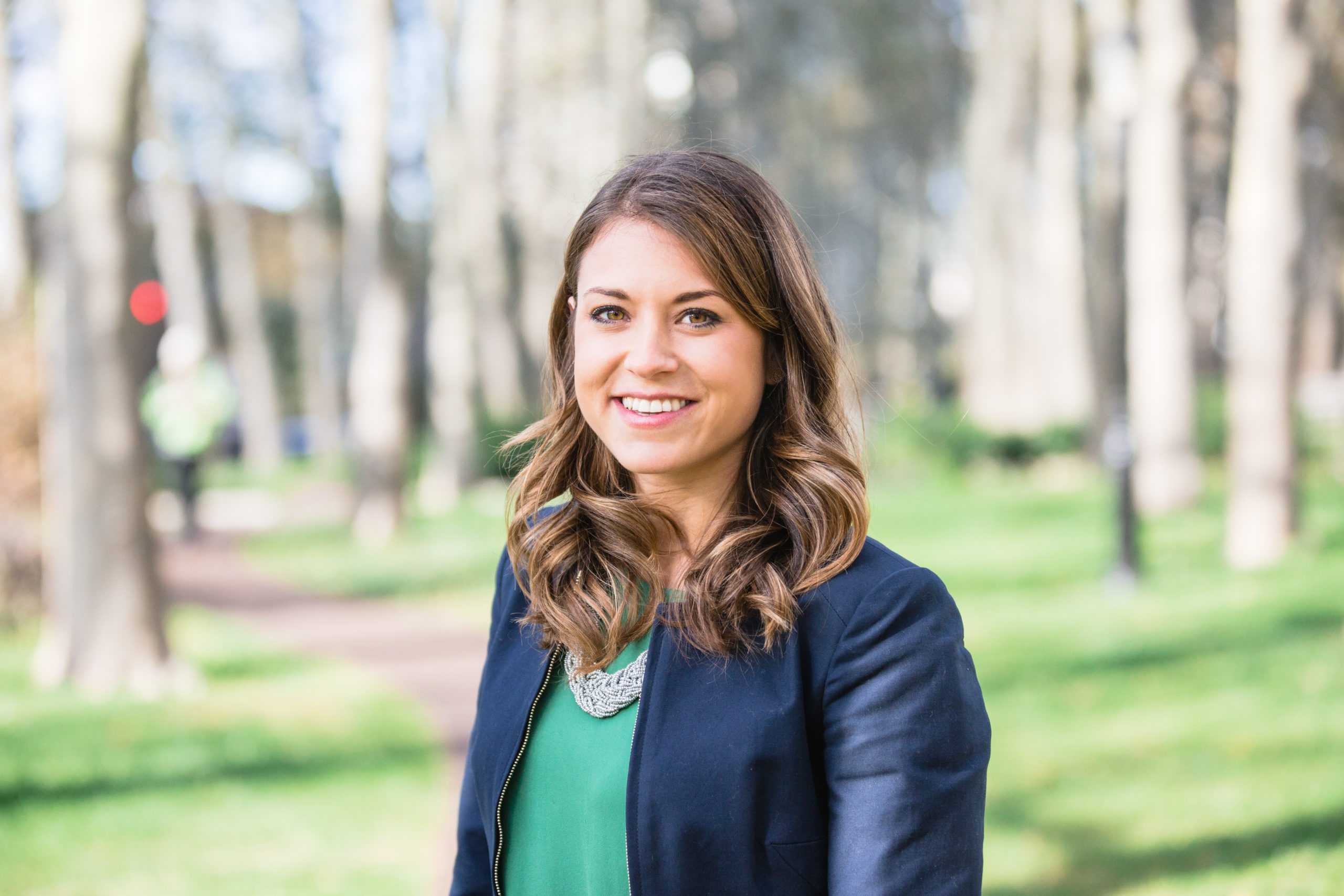How Catalyst Fund is Connecting Fintech, Impact, and Climate Resilience
May 03, 2022
 Today, 1.7B adults worldwide are unbanked and over 3B are underserved by the traditional financial system. Catalyst Fund was founded in 2016 to help create innovative financial technology (fintech) products that are accessible, affordable, and appropriate for underserved consumers in emerging markets. By supporting early-stage ventures and building enabling ecosystems around them, this sponsored project of Rockefeller Philanthropy Advisors has helped 61 fintech startups to refine and scale inclusive financial services solutions. Catalyst Fund now serves close to 7M consumers across Africa and Latin America and has raised over $500M in follow-on capital from investors.
Today, 1.7B adults worldwide are unbanked and over 3B are underserved by the traditional financial system. Catalyst Fund was founded in 2016 to help create innovative financial technology (fintech) products that are accessible, affordable, and appropriate for underserved consumers in emerging markets. By supporting early-stage ventures and building enabling ecosystems around them, this sponsored project of Rockefeller Philanthropy Advisors has helped 61 fintech startups to refine and scale inclusive financial services solutions. Catalyst Fund now serves close to 7M consumers across Africa and Latin America and has raised over $500M in follow-on capital from investors.
Maelis Carraro is the Managing Director of Catalyst Fund. With a career spanning policy, advisory, microfinance, impact investing, and even a fintech startup of her own, Maelis has experienced first-hand the manifold challenges that fintech founders overcome to deliver solutions that will best serve consumers and households in developing markets. As part of our 20th Anniversary celebration, we had the pleasure of chatting with Maelis about the origins of Catalyst Fund, its bespoke, customer-centric approach to fintech support, and its plans to take this know-how to tackle climate change risks for vulnerable communities.

Please tell me a bit about your journey and what brought you to the inclusive finance/inclusive fintech space.
I have been working in the financial inclusion, fintech and impact investing space globally for 14 years. I began my journey in policy at the OECD (Organisation for Economic Co-operation and Development), where I researched how microfinance and other bottom-up financing mechanisms could support low-income communities in Southeast Asia in adapting to climate change. I wanted to be closer to the operations of a financial institution, so I then joined the Grameen Bank. That was an eye-opening role where I saw both the challenges of delivering financial services to low-income communities and the potential to tangibly improve livelihoods by enabling access to essential services. I then joined the International Finance Corporation’s (IFC) Financial Institutions Group in Istanbul. While there, I looked at how financial institutions could offer responsible financial products, ensure customer protection and at the same time leverage digital channels to improve operations and better serve customers.
After a few years, I went on to complete my MBA/MIA at Columbia Business School and the School of International Affairs and launched a fintech startup of my own. Our goal was to enable Latin American migrants in the US to affordably send money to help their families in their countries of origin. Our product allowed them to create savings accounts labeled for education, healthcare, or home building to help them build resources over time. When I quickly ran into multiple hurdles and regulatory constraints, I knew the venture would not work and we decided to wind the venture down. Having experienced this, I set out to support other entrepreneurs involved in building the fintech solutions of the future to overcome the issues I faced. That’s when I joined BFA Global (the home of Catalyst Fund) to launch the Catalyst Fund and help entrepreneurs across emerging markets realize their potential to create a fairer and more inclusive financial system.
How did the idea of the Catalyst Fund take shape at the beginning and what does it do?
Catalyst Fund was founded to fill specific gaps for fintech entrepreneurs serving vulnerable, excluded people. We knew many great entrepreneurs with great innovations, but their businesses were not getting to scale because they were not attracting capital fast enough and didn’t have the support networks needed to overcome the challenges in launching and scaling ventures. This is why we wanted to create a facility to disburse capital nimbly to early-stage fintech startups and to combine that with bespoke and hands-on support to de-risk their path towards product-market fit, and attract further investment.
In addition to a capital injection of $100,000 into the startups, Catalyst Fund provides bespoke venture-building support delivered by our network of product managers, data scientists, growth hackers, and marketing experts, who really embed themselves in the startups’ teams, working alongside the companies. As we de-risk the startup products and services, we also connect them to investors to enable more capital to flow into the sector. Our team pioneered a new model that combines both depth of support and reach, and has shown that inclusive products for underserved segments are market and investment-worthy.
How has your personal experience with your own startup helped you shape the way Catalyst Fund works?
It has been an asset to bring my and my colleagues’ entrepreneurial spirit into building Catalyst Fund. All of us in have been founders, operators, or investors in startups, so we designed a program that is founder-centric. This means putting the needs of the startup teams at the center of our work and offering support that takes work off their plates and solves their urgent problems. As an entrepreneur, I attended several accelerator or incubator programs, but their value was seldom clear because they weren’t tailored to the specific needs and stage of my venture, which were distinct from others in my cohort. Our inspiration was to design a highly bespoke venture-building program that could meet founders where they are. This way every founder and startup gets the support they need, when they need it, tailormade to the team and the challenges they are facing.
Our venture-building process takes customer-centricity as a starting point so we assess each product for accessibility, affordability, and appropriateness to ensure they have the right balance of tech and touch and the highest potential for impact. This means thinking about how people are going to access the product. Is it an app-based solution, USSD1, or a smartphone? In addition, we also have to consider consumers’ cash flows and uneven incomes; when will they have extra and when will they need extra? So, we do data analysis, field research, and leverage human-centered design to learn and build around customer insights. We work with the startups to analyze their data related to customer journeys, understand any gaps, and then complement this with qualitative research. We talk to customers and get feedback to then iterate on the product and the strategy. For about 80% of our startups, we’ve done on-the-ground research. Founders are usually aware of who their customers are and what they want, but it’s about going a little deeper and embedding that knowledge into products that really work for users.
Building this centricity in at the early stages later translates into greater impact. We are seeing that the products our startups bring to market—because they design with more agility, and with the consumer at the center—deliver greater benefits, as evidenced by a high Net Promoter Score2 from consumers across our portfolio overall. The startups that think creatively and holistically about customer needs are the most successful.
You have a lot of experience with regulatory frameworks both in Catalyst Fund and through your own venture. How do you support fintech startups to navigate the complexities of financial and technology regulations?
Fintech is certainly a heavily regulated industry in every market where we go, and there’s always a whole subset of regulations that a founder has to understand. To help them, we create public knowledge products for the ecosystem, as well as embed our regulatory expertise in our venture-building. We have for startups and for regulators in our key markets: Nigeria, South Africa, Kenya, India, and Mexico. What are the regulations startups should be aware of if they are building savings, credit, investment products, payments, others? How can they best understand and communicate with regulators and vice versa? Sometimes we also integrate advice on how to navigate the regulatory environment in our venture-building work. For example, we helped a few companies evaluate the best legal structures for offering certain products, given the regulations in their countries and compliance requirements.
What insights do you have about the intersection between climate resilience and digital finance?
Climate change is the defining crisis of our century, and, if no rapid action is taken, it will send 100M people back into poverty. Our startups’ customers (low-income, underbanked, and living in rural, coastal, and densely populated cities in developing markets) are precisely those who are highly vulnerable to climate change risks. As a result, we cannot ignore the drastic effect climate might have on them. There’s a deep interconnectedness there that allows us to explore how financial tools can enable resilience and adaptation in the long term. In response, we are expanding our theory of change, using financial health as a foundation, to invest in companies that can improve the resilience of climate-vulnerable communities in emerging markets. We will leverage the fact that finance can be embedded in tech-enabled, climate resilience solutions for low-income communities to improve their accessibility and affordability.
How is Catalyst Fund approaching this challenge?
Over the next few years, we will expand our focus to back fintech companies that accelerate the climate resilience of vulnerable communities. We’ve identified three broad buckets that we want to invest in:
- financial resilience tools (such as disaster insurance and parametric crop insurance);
- climate-smart livelihood solutions, (such as agtech, fishery management, and climate-smart livelihood-generating businesses); and
- sustainable utilities, such as water access, water management, energy access, cooling solutions, cold storage, etc.
We see an opportunity to help make solutions affordable through fintech because communities don’t yet have the means to access them, and they lack safety nets to cope. Catalyst Fund will remain a pioneering platform to support high-impact early-stage entrepreneurs who invest both financial and human capital to de-risk the startups’ journeys. We continue to find that our startups need both kinds of support, especially in the early days of testing and iterating, and reaching product-market fit. In addition, just as we steered our startups (and the field) towards a clearer appreciation of consumer financial health in emerging markets 6 years ago, we now also want to push our community to think of climate resilience as an essential element of building more resilient societies. We’ll support entrepreneurs in integrating climate considerations into their products and investors to recognize climate resilience and adaptation as a highly investable opportunity. It’s an urgent and unprecedented challenge, and we feel fortunate to put our platform to work to address this.
[1] USSD is Unstructured Supplementary Service Data, a Global System for Mobile communication technology.
[2] Net Promoter Score is a measurement of how willing a customer is to recommend a company’s products or services. The higher the score, the more likely customers are to recommend those products or services
Photo by Israel Andrade on Unsplash
Back to News
